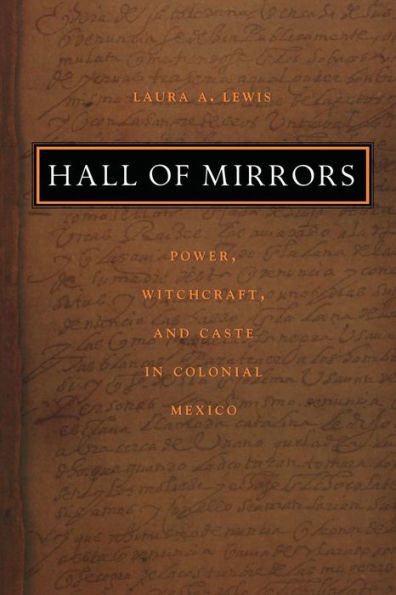When we talk about the Witch persecutions of the sixteenth and seventeenth centuries, we generally only discuss what happened in Europe or in New England. But the persecutions were found in all the European colonies as well as the metropolises and took different forms in each area. Looking outside of the usual histories will also give us insight into the roles of magic in these different contexts as cultures came together in hybrid / mestizo forms.
Laura A Lewis’s Hall of Mirrors demonstrates how magical practices acted as means for the subordinated peoples of Mexico – both enslaved and free blacks and indigenous peoples - to both resist and to mediate the power relationships in the colonies. She shows how magic use was a factor in the development of caste in Mexico, in the Spanish colonial setting. Witchcraft was an arena in which indigenous peoples and women had authority. “Because witchcraft was part of and not apart from that larger world, it was as central to colonial reality as labor practices or civil controls.”(11) In Mexico, as in Quebec, the role of the Catholic church, which wished to convert indigenous people, led to some degree of autonomy and higher status for them, and for the mestizos born of marriages between Spanish and indigenous people.
New Spain’s witches were never executed, and torture was not used against them. In Spain, witches were often relocated to new villages where their reputations would not precede them. “Punishment included the occasional whipping, but more often fines, public confessions and humiliation, temporary exile, and confinement to the feminized spaces of home, church, and hospital.” (43)
Working with records from various colonial courts, Lewis demonstrates how Indians came to be the masters of witchcraft. Magic’s power drew on gendered and caste distinctions to challenge colonial hierarchies. The complex caste distinctions of blacks, mulattoes, and mestizos and the way these intermediate groups mediated between Spaniards and Indians were all enforced in law. She brings to life the personal stories inside the legal cases, which are very interesting.
It’s published by an academic press but the strong focus on people telling their stories makes it engaging and readable. And it’s a history that most of us know very little about. I found it interesting to see a whole different racial and class hierarchy than what is typically presented, as, like in Canada, Indigenous people had a specific legal standing separate from the colonizers, or the enslaved peoples, and the hybrid magic that developed in Mexico came from this set of differences and adjustments.
~ review by Samuel Wagar
Author: Laura A. Lewis
Duke University Press, 2003
262 pg. Paperback £22 / $38 Can / $28 US

